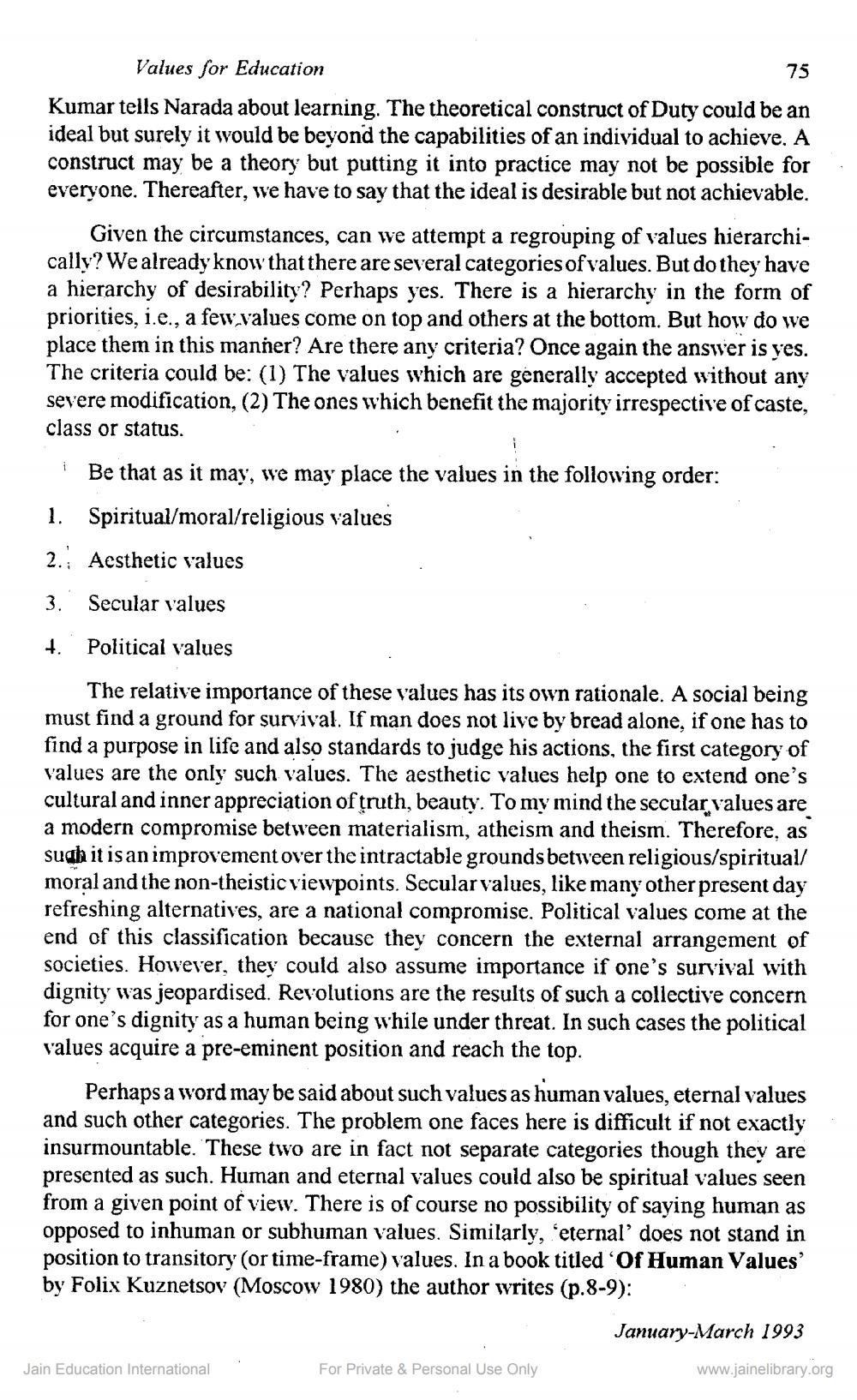________________
Values for Education
75
Kumar tells Narada about learning. The theoretical construct of Duty could be an ideal but surely it would be beyond the capabilities of an individual to achieve. A construct may be a theory but putting it into practice may not be possible for everyone. Thereafter, we have to say that the ideal is desirable but not achievable.
Given the circumstances, can we attempt a regrouping of values hierarchically? We already know that there are several categories of values. But do they have a hierarchy of desirability? Perhaps yes. There is a hierarchy in the form of priorities, i.e., a few values come on top and others at the bottom. But how do we place them in this manner? Are there any criteria? Once again the answer is yes. The criteria could be: (1) The values which are generally accepted without any severe modification, (2) The ones which benefit the majority irrespective of caste, class or status.
Be that as it may, we may place the values in the following order:
1. Spiritual/moral/religious values
2. Aesthetic values
3.
Secular values
4. Political values
i
The relative importance of these values has its own rationale. A social being must find a ground for survival. If man does not live by bread alone, if one has to find a purpose in life and also standards to judge his actions, the first category of values are the only such values. The aesthetic values help one to extend one's cultural and inner appreciation of truth, beauty. To my mind the secular values are a modern compromise between materialism, atheism and theism. Therefore, as sugh it is an improvement over the intractable grounds between religious/spiritual/ moral and the non-theistic viewpoints. Secular values, like many other present day refreshing alternatives, are a national compromise. Political values come at the end of this classification because they concern the external arrangement of societies. However, they could also assume importance if one's survival with dignity was jeopardised. Revolutions are the results of such a collective concern for one's dignity as a human being while under threat. In such cases the political values acquire a pre-eminent position and reach the top.
Perhaps a word may be said about such values as human values, eternal values and such other categories. The problem one faces here is difficult if not exactly insurmountable. These two are in fact not separate categories though they are presented as such. Human and eternal values could also be spiritual values seen from a given point of view. There is of course no possibility of saying human as opposed to inhuman or subhuman values. Similarly, 'eternal' does not stand in position to transitory (or time-frame) values. In a book titled 'Of Human Values' by Folix Kuznetsov (Moscow 1980) the author writes (p.8-9):
Jain Education International
For Private & Personal Use Only
January-March 1993 www.jainelibrary.org




